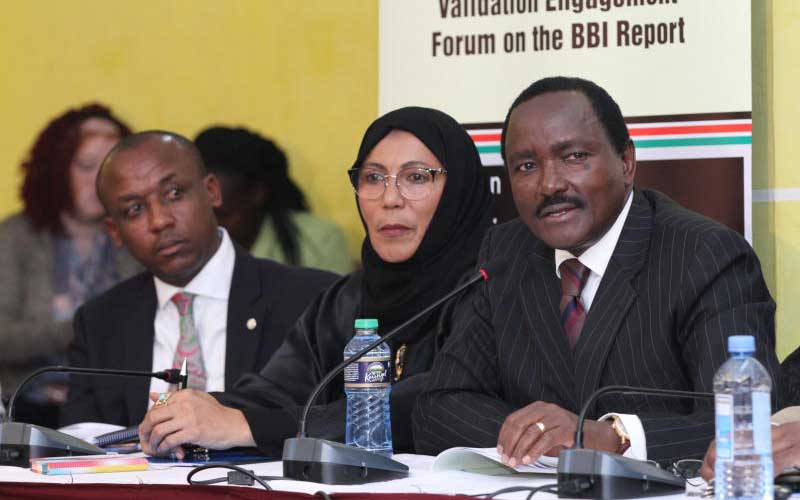×
The Standard e-Paper
Kenya’s Boldest Voice

Wiper party leader Kalonzo Musyoka flanked by the party deputy leader Shakila Abdala and vice chair Mutula Kilonzo Jr make their submissions to the BBI taskforce at KICC, Nairobi . [Elvis Ogina,Standard]
National Super Alliance (NASA) affiliate parties appear to be have sidelined ODM in their proposals for the creation of position of prime minister.